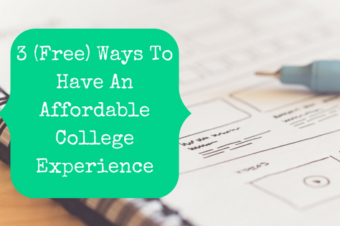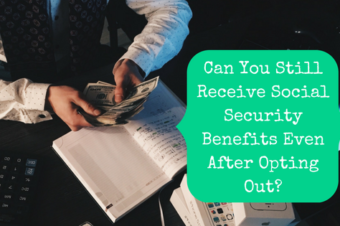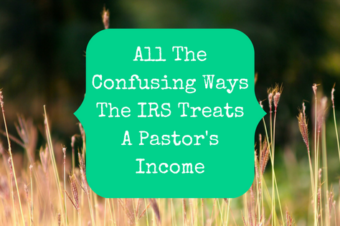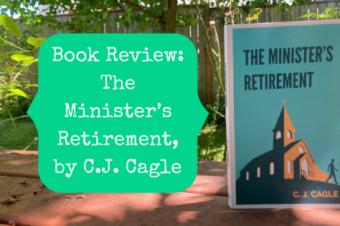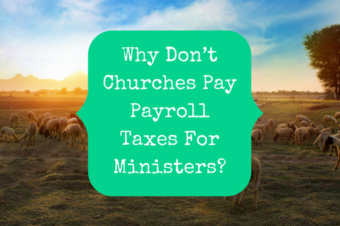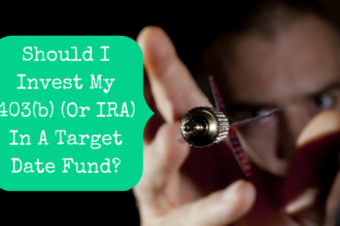Whether or not you realize it, as a pastor you already possess many skills that are in high demand in the secular marketplace. You simply must recognize your skills and translate them into the proper marketplace vernacular for the job you want.
Reader Question: What Should A Mobile Pastor Do With Extra Income?
Dear Pastor’s Wallet,
My only debt is my mortgage, a 30/5 ARM with 23 years remaining. I am saving 15% of my pre-tax income toward retirement, have an emergency fund and am saving towards large expenses like my kids’ college, a new car, etc. However, I still have some extra money at the end of the month. Should I pay down my mortgage or invest it in a brokerage account? I have been at my current post for several years and could be moved at any time. My ultimate goal is to be debt free.
What to do with extra income is a common question, and you can find many articles and opinions online. However, most are not written for pastors. They don’t take into account the pastoral housing allowance or some denominations’ practice of moving their pastors every few years.
The above question was written to me by a pastor who had done a lot of research on the pros and cons of each choice. Yet, he vacillated on the decision every month because nothing he read addressed his situation as a mobile pastor. This is how I answered him:
Ditch The Adjustable Rate Mortgage
First, I would refinance to a fixed rate mortgage. Interest rates are going up, so it is best to lock in a lower rate now before your mortgage rate adjusts higher. If you can afford it, refinancing to a 15-year mortgage will give you the lowest rates.
Over the last year, rates have gone up about a quarter of a percent, and some experts expect them to reach 5% in the coming year. The economy is strong and the Federal Reserve has been, and is expected to continue, raising interest rates regularly. That means that mortgages are only going to get more and more expensive.
Build A “Moving Fund”
Second, I would save up some money to build a “moving fund” in addition to your regular emergency fund. This would be extra money set aside to cover the expenses of moving so that you are prepared when the time comes. It should be enough to cover 3 months’ mortgage payments and moving expenses. This way, if you have to move and it takes a couple of months to sell your home, you’ll have the margin to do so.
Don’t invest your moving fund in the stock market. You don’t want to risk losing this money. Instead, put it in a money market or savings account. That way, you can count on it being there when the time comes to move.
Eliminate PMI (Private Mortgage Insurance)
Private mortgage insurance (PMI) is something your lender requires you to purchase if you have less than 20% equity in your home. It is not insurance to protect you. It is insurance to protect your lender in case you default when your house is underwater. PMI usually costs between .5% and 1% of the total loan value annually. That means that for every $100,000 that you borrow, you could be paying up to $83.33 a month in PMI.
If you pay PMI, I would use your extra money to pay down your mortgage until you don’t have to do so anymore. Usually, PMI is no longer required once you have 20% equity in your home. You can double check their specific requirements with your lender.
Pay Down The Mortgage Or Invest?
If you do the things I recommend above, then it doesn’t make a big difference what you do with your extra money.
Mortgage
If you put your money into your mortgage, you will get it back when you move. It will be tied up in an illiquid asset in the meantime, but with a “moving fund” in place, you should have enough liquid assets to last until the house sells.
It is important to note, though, that paying extra on your house doesn’t guarantee you can take a larger housing allowance. Per IRS rules, the housing allowance must be the lesser of:
- The amount you officially designated in advance;
- The amount actually used to provide the home;
- The fair rental value of the home (including furnishings, utilities, etc.).
So, if the fair rental value of your home is $1,500, you can’t take a housing allowance of $2,000 just because you’re paying extra on your mortgage. You may have to pay taxes on the extra mortgage payment, but you’ll have to pay taxes on any gains from a brokerage account as well.
Brokerage Account
Investing your money in a brokerage account makes it more easily accessible, but it doesn’t move you towards your goal of being free from debt. It isn’t a permanent decision, though. There is no reason you couldn’t change your mind, cash out your investments, and put the money towards your mortgage at a later date. The only risk is that the value of your investments can go down.
What Would I Do?
Personally, I would probably pay down the mortgage to the maximum allowed housing allowance and invest the rest of the money. That is, once I had a “moving fund” in place. If you’re not sure what to do, it’s probably safer to invest the money. Then you still have the option to change your mind at any time. Just make sure you don’t invest in overly risky investments if you think you may want to cash them out to pay off your mortgage in the next couple of years.
If you’re at the point where you’re wondering what to do with extra income, congratulations! You’re doing a great job with your finances, setting a wonderful example for your congregation, and positioning your family for financial success. I’m proud of you!


